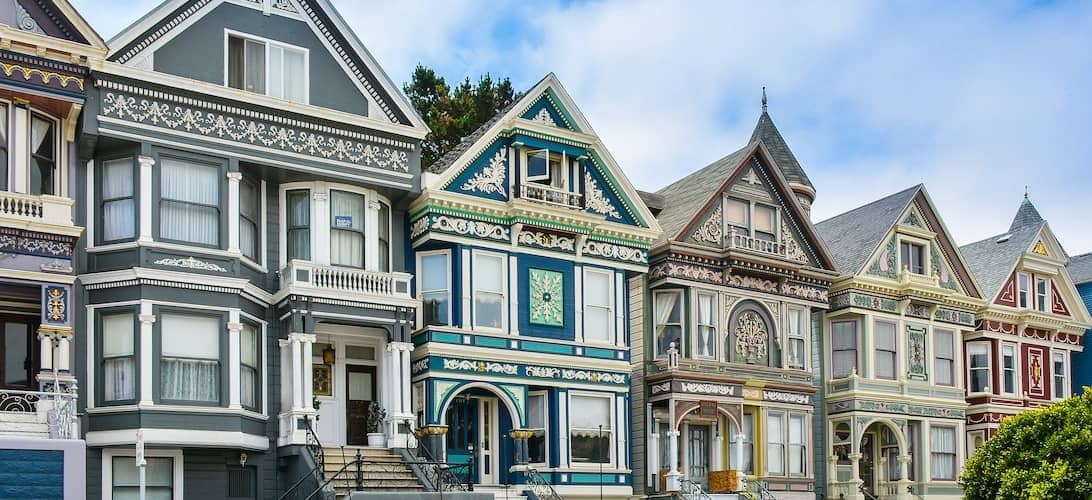
Historic Homes
The UK is renowned for its rich history and architectural heritage, with historic homes serving as tangible connections to the past. These homes, whether grand manors or quaint cottages, offer a unique charm and character that new builds often lack. However, preserving these treasures comes with its own set of challenges and responsibilities. In this blog, estate agents in Putney explore the significance of historic homes, the benefits and challenges of owning one, and the ways in which the UK property market is evolving to preserve this invaluable heritage.
The Allure of Historic Homes
Historic homes are more than just buildings; they are stories captured in stone, brick, and timber. Each one offers a glimpse into the past, reflecting the architectural styles, craftsmanship, and way of life of bygone eras.
- Architectural Beauty
From Tudor timber-framed houses to Georgian townhouses and Victorian villas, the architectural diversity of historic homes is immense. These properties often feature distinctive details such as ornate fireplaces, original woodwork, stained glass windows, and intricate mouldings, which are rarely found in modern homes.
- Cultural Significance
Many historic homes are listed buildings, recognised for their special architectural or historic interest. Owning a listed property means being a custodian of the nation’s heritage. These homes often have fascinating histories, having housed notable figures or played a role in significant events.
- Unique Character
Historic homes exude character and charm that modern properties often lack. The quirks and idiosyncrasies of an old house—like creaky floors, uneven walls, and hidden nooks—add to their appeal. Each home is unique, offering a living experience that is both personal and historical.
The Challenges of Owning a Historic Home
While owning a historic home can be incredibly rewarding, it also comes with responsibilities and challenges that require careful consideration.
- Maintenance and Restoration
Historic homes often require more maintenance than modern properties. Older structures can suffer from issues like damp, outdated plumbing, and electrical systems that need upgrading. Restoring and maintaining these properties requires specialised knowledge and can be costly.
- Planning Restrictions
Listed buildings are subject to strict planning regulations to preserve their historic integrity. Any alterations or repairs usually need consent from local authorities, which can limit what owners can do with their properties. This ensures that changes are in keeping with the building’s character but can also be restrictive and time-consuming.
- Energy Efficiency
Historic homes can be less energy-efficient compared to modern buildings. Features like single-glazed windows and solid walls can lead to higher heating costs. While there are ways to improve energy efficiency, such as installing secondary glazing or insulation, these measures must be carefully implemented to avoid damaging the property’s historic features.
Preserving Heritage in the Modern Age
Preserving historic homes is not just about maintaining buildings; it’s about safeguarding the cultural and architectural heritage for future generations. The UK property market, along with various organisations and individuals, plays a crucial role in this endeavour.
- Government and Heritage Organizations
Organisations such as Historic England and the National Trust work tirelessly to protect and promote the country’s historic environment. They provide guidance, grants, and support to owners of historic properties, ensuring that restoration and maintenance work is carried out to high standards.
- Incentives and Grants
There are various financial incentives available for owners of historic homes. Grants from heritage organisations can help cover the costs of necessary repairs and restorations. Additionally, certain tax reliefs and exemptions are available for listed buildings, easing some of the financial burdens associated with their upkeep.
- Sympathetic Development
Developers are increasingly recognising the value of incorporating historic buildings into new developments. This sympathetic approach to development can help preserve historic structures while giving them a new lease on life. Converting old mills into apartments or repurposing historic mansions into boutique hotels are examples of how heritage can be preserved within modern contexts.
The Market for Historic Homes
The market for historic homes remains robust, driven by their unique appeal and the desire among buyers to own a piece of history. However, purchasing a historic home requires a different mindset and approach compared to buying a new build.
- Understanding the Commitment
Prospective buyers need to be aware of the commitment involved in owning a historic home. This includes understanding the maintenance needs, potential costs, and restrictions on alterations. Engaging with experts in historic property can provide valuable insights and help buyers make informed decisions.
- Valuation and Surveys
Valuing a historic home with its special features and condition is not easy. Detailed surveys by experts in historic buildings will show up any potential problems allowing a realistic valuation of the property for a purchaser.
- Living in History
Thus, it’s particularly gratifying to live in a historic home for those who are open to taking on the challenges that come with one. It offers a unique living, blending past and present beautifully into one. It is in these aspects that so many buyers are highly interested: a sense of relation to history and the distinction of such homes.
Conclusion
These historic homes represent rich culture and architectural heritage across the UK. It means not just the preservation of structures but stories of the past. It is not always easy to be guardians of a historic home, but the rewards are immense. The UK property market moves into new ways of continuing to support the preservation of historic homes and ensuring these timeless pieces of history remain treasured components of our communities. By appreciating the value of these properties and the effort their care entails, we can all do our part to safeguard the heritage of our nation for generations to come.
For More Details NCD!




